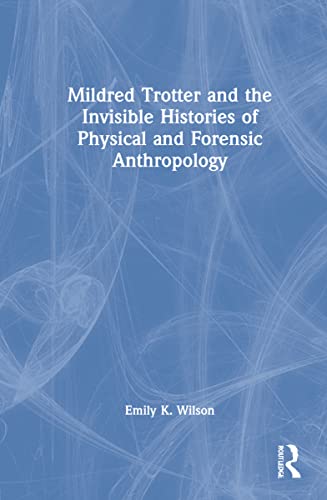

Most ebook files are in PDF format, so you can easily read them using various software such as Foxit Reader or directly on the Google Chrome browser.
Some ebook files are released by publishers in other formats such as .awz, .mobi, .epub, .fb2, etc. You may need to install specific software to read these formats on mobile/PC, such as Calibre.
Please read the tutorial at this link: https://ebookbell.com/faq
We offer FREE conversion to the popular formats you request; however, this may take some time. Therefore, right after payment, please email us, and we will try to provide the service as quickly as possible.
For some exceptional file formats or broken links (if any), please refrain from opening any disputes. Instead, email us first, and we will try to assist within a maximum of 6 hours.
EbookBell Team

4.1
10 reviewsIn the wake of World War II, anatomist and anthropologist Mildred Trotter left the Midwest for a temporary post as the forensic anthropology expert for the Army in the Territory of Hawaii. Her formidable task was to identify the remains of war dead in order to return them to their families, in a national effort that continues to this day.
Mildred Trotter and the Invisible Histories of Physical and Forensic Anthropologyis the first, long overdue biography on this woman of immense stature in her field. She was the first woman to serve as President of the American Association of Physical Anthropologists and the first woman to be full professor at the Washington University School of Medicine in St. Louis. While primarily a biography of Trotter, this book also examines aspects that are so often left out of retrospectives of science and scientific figures. This includes scientific error, the historical experiences of the few women and individuals from other marginalized groups active in the discipline, sexism, and scientific and social racism. This book also provides novel historical context regarding her major and now well-known tibia mismeasurement. Mildred Trotter and the Invisible Histories of Physical and Forensic Anthropologyis a must-read for anyone interested in the history of science and women in science, and for all practicing and aspiring biological and forensic anthropologists.